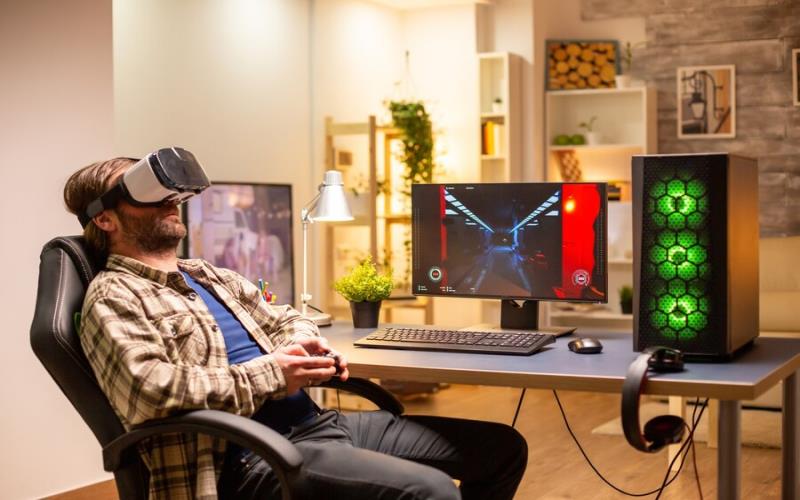Introduction:
In a world where digital technologies shape our daily lives, online เว็บคาสิโน ยูฟ่าเบท gaming has emerged as more than just a form of entertainment. Beyond the immersive virtual worlds and dynamic gameplay, there lies a hidden treasure trove of cognitive benefits, particularly in the realm of problem-solving skills. This article explores the profound impact of online gaming on the development of problem-solving abilities, shedding light on how this seemingly recreational activity serves as a powerful tool for mental agility and strategic thinking.
Dynamic Environments and Adaptive Thinking: Online games are often characterized by dynamic and ever-changing environments. Players are required to adapt quickly to new challenges, obstacles, and opponents, fostering adaptive thinking. Whether it’s navigating a complex puzzle, strategizing against opponents, or overcoming unexpected hurdles, the constant need for adaptation in online gaming cultivates a mindset that is flexible and capable of adjusting strategies on the fly.
Puzzle-Solving and Critical Thinking: Many online games, particularly those in the genres of puzzle-solving and strategy, are designed to stimulate critical thinking skills. From deciphering intricate puzzles to formulating complex strategies, players engage in mental exercises that demand analysis, planning, and problem-solving. The satisfaction of overcoming challenging puzzles or opponents encourages players to refine their critical thinking abilities, honing their capacity to analyze situations and make informed decisions.
Collaboration and Teamwork: Multiplayer online games often require collaboration and teamwork to achieve common objectives. The coordination of efforts, allocation of resources, and synchronization of actions demand effective communication and problem-solving skills. Online gaming serves as a unique platform for individuals to learn the art of collaboration, fostering an environment where players must work together to overcome shared challenges, teaching them the value of teamwork and collective problem-solving.
Resource Management and Decision-Making: In many online games, resource management is a crucial aspect of gameplay. Whether it involves in-game currency, ammunition, or strategic assets, players must make decisions on how to allocate and utilize resources efficiently. This aspect of online gaming parallels real-world scenarios, where individuals are required to make decisions that involve trade-offs and prioritize resources effectively. Through these experiences, players refine their decision-making skills and learn to assess the consequences of their choices.
Strategic Planning and Long-Term Thinking: Strategic planning is a fundamental aspect of online gaming, especially in genres like real-time strategy (RTS) and massively multiplayer online role-playing games (MMORPGs). Players engage in long-term thinking as they plan their moves, anticipate opponents’ actions, and strategize for future challenges. This process of foresight and strategic planning not only enhances gameplay but also contributes to the development of skills applicable in various real-world scenarios that require long-term goal setting and planning.
Adversity and Resilience: Online gaming is rife with situations where players face adversity, whether in the form of difficult opponents, setbacks, or unexpected obstacles. Navigating through these challenges requires resilience and problem-solving skills. The ability to bounce back from defeats, learn from mistakes, and adapt strategies fosters a resilient mindset that is invaluable in both gaming and real-world contexts.
Rapid Decision-Making Under Pressure: Online gaming often involves situations where split-second decisions can be the difference between success and failure. In fast-paced games or competitive settings, players must make rapid decisions under pressure, enhancing their ability to think on their feet. This skill is transferable to real-life situations where quick, decisive actions are required, making online gaming a unique training ground for developing this aspect of problem-solving prowess.
Conclusion:
As online gaming continues to evolve and capture the imagination of millions worldwide, it is essential to recognize its multifaceted role in personal development. The cultivation of problem-solving skills through dynamic environments, strategic thinking, collaboration, and resilience positions online gaming as a powerful ally in shaping cognitive abilities. As society embraces the digital age, understanding and harnessing the positive impact of online gaming on problem-solving skills can unlock a wealth of potential in individuals, preparing them for the challenges of the modern world.

